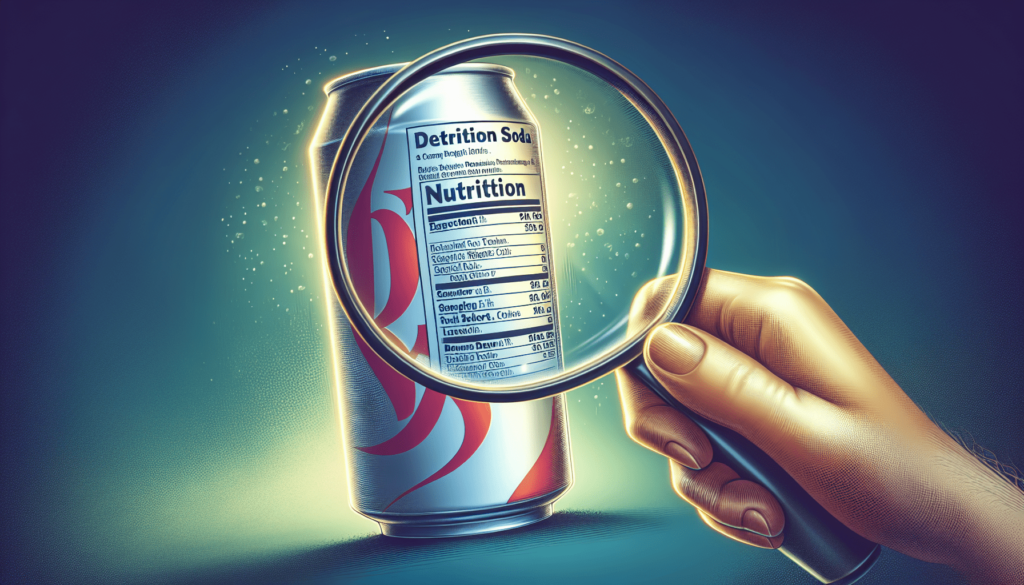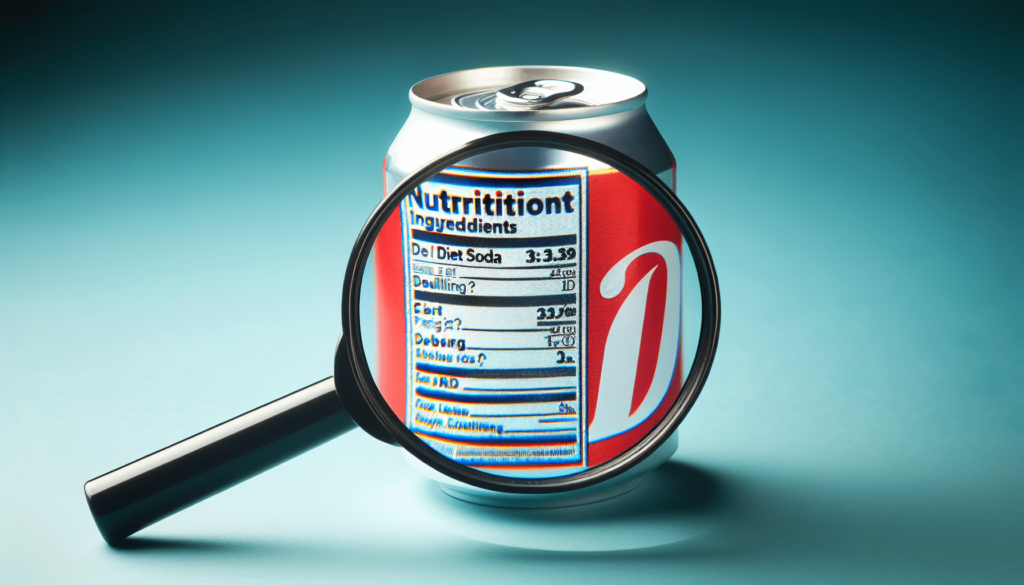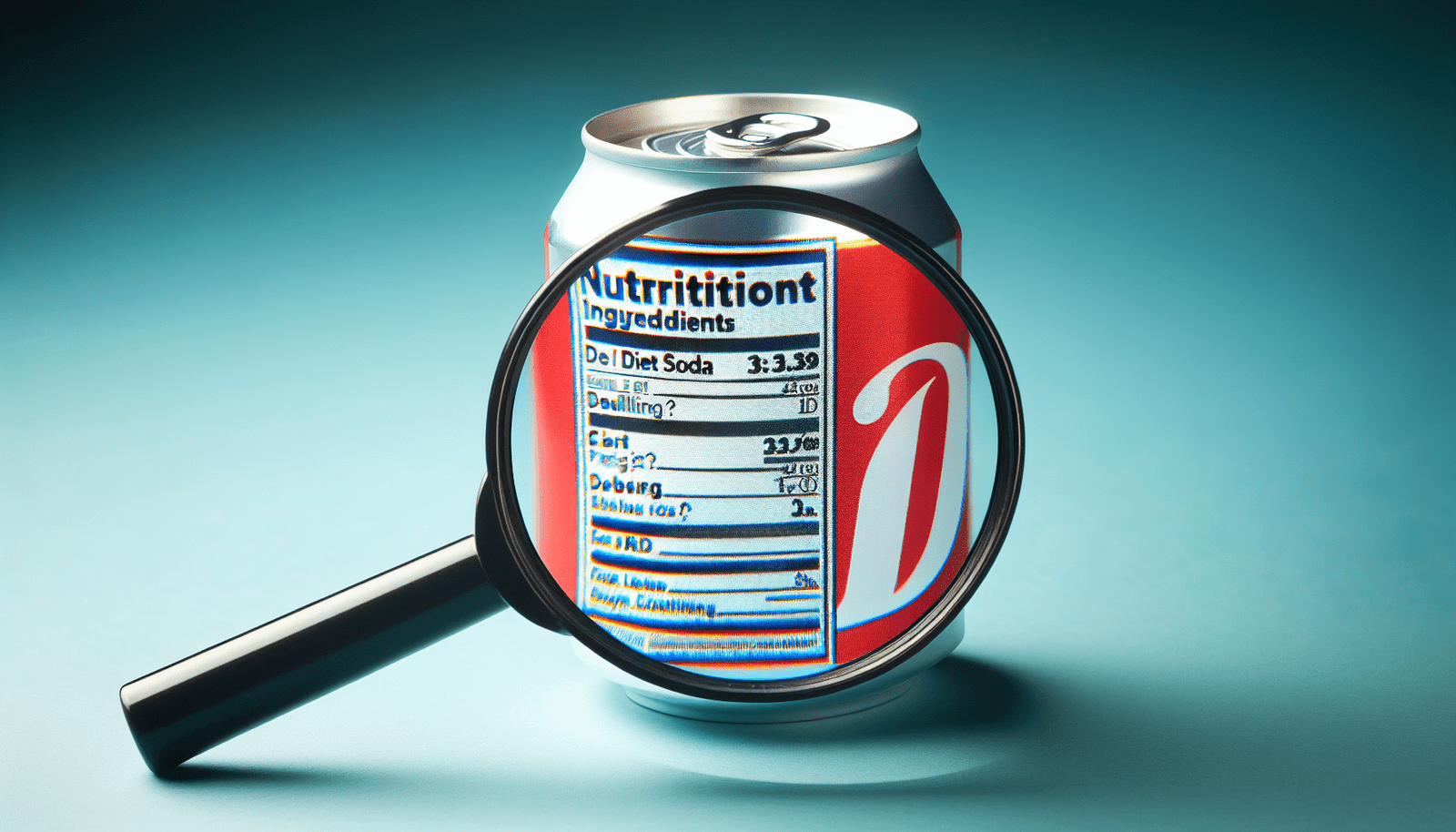The Truth About “Diet” Drinks
Are you someone who reaches for a diet soda instead of a regular one, thinking that you’re making the healthier choice? Many people turn to “diet” drinks in an attempt to cut down on calories or sugar intake. But have you ever stopped to wonder what’s really in those beverages? In this article, we’ll take a closer look at the ingredients commonly found in diet drinks and explore their potential impact on your health.
Understanding Artificial Sweeteners
One of the key components of “diet” drinks is artificial sweeteners. These are substances that are many times sweeter than sugar, allowing manufacturers to create sweet-tasting beverages without the added calories. Some of the most common artificial sweeteners used in diet drinks include aspartame, sucralose, and saccharin. While these sweeteners are approved by regulatory agencies like the FDA, there is ongoing debate about their safety and potential side effects.
Breaking Down Aspartame
Aspartame is one of the most widely used artificial sweeteners in “diet” drinks. It is made from two amino acids, aspartic acid and phenylalanine, both of which are naturally found in foods. While aspartame is approved for use by regulatory agencies, some studies have raised concerns about its potential link to health issues like headaches, dizziness, and even cancer. If you’re someone who consumes a lot of “diet” drinks containing aspartame, it might be worth considering the potential risks associated with this sweetener.
Unveiling Sucralose
Sucralose is another artificial sweetener commonly used in “diet” drinks. Unlike aspartame, sucralose is made by modifying sugar molecules to make them low in calories. While sucralose is considered safe for consumption by regulatory bodies, some people may experience digestive issues like bloating or gas when consuming products containing this sweetener. If you find yourself experiencing these symptoms after drinking “diet” beverages with sucralose, it might be best to limit your intake or opt for drinks with alternative sweeteners.
The Story Behind Saccharin
Saccharin is one of the oldest artificial sweeteners used in “diet” drinks. Despite being discovered over a century ago, saccharin is still used today in various low-calorie and sugar-free products. While saccharin was once thought to be a potential carcinogen, further research has debunked these claims, leading to its approval for use in foods and beverages. If you’re someone who prefers “diet” drinks with saccharin, you can rest assured that this sweetener is considered safe when consumed within recommended limits.

Hidden Ingredients in “Diet” Drinks
When you pick up a can of your favorite “diet” soda, you might not realize that there are hidden ingredients lurking within. In addition to artificial sweeteners, these beverages often contain other additives and preservatives to enhance flavor, color, and shelf life. Let’s take a closer look at some of the common hidden ingredients found in “diet” drinks and their potential impact on your health.
Caramel Color
Many “diet” drinks, especially colas, contain caramel color to give them their signature dark hue. While caramel color is generally recognized as safe for consumption, some studies have linked certain types of caramel color to potential health risks. If you’re someone who enjoys “diet” sodas with caramel color, it’s essential to consider the type of caramel color used in the beverage and its potential implications for your health.
Phosphoric Acid
Another common ingredient found in many “diet” sodas is phosphoric acid. This compound helps give these beverages their tangy flavor and also acts as a preservative. While phosphoric acid is generally regarded as safe for consumption, consuming large amounts of acidic beverages like “diet” sodas can potentially harm tooth enamel over time. If you’re concerned about the effects of phosphoric acid on your dental health, you may want to limit your intake of “diet” drinks containing this ingredient.
Artificial Flavors
To mimic the taste of regular sugary beverages, “diet” drinks often contain artificial flavors. These lab-created compounds are designed to enhance the overall taste of the beverage without adding any extra calories. While artificial flavors are considered safe for consumption, some people may prefer to opt for beverages made with natural flavors for a more authentic and wholesome drinking experience. If you’re someone who values natural ingredients in your beverages, you may want to choose “diet” drinks that use natural flavors instead of artificial ones.
The Impact of “Diet” Drinks on Your Health
Now that we’ve explored the ingredients commonly found in “diet” drinks, let’s discuss their potential impact on your health. While these beverages are marketed as healthier alternatives to regular sodas, there are ongoing debates about their overall effects on the body. From weight management to metabolic health, here are some of the key considerations when it comes to consuming “diet” drinks.
Weight Management
One of the primary reasons people turn to “diet” drinks is to help manage their weight. By opting for beverages with artificial sweeteners instead of sugar, individuals can reduce their overall calorie intake and potentially aid in weight loss efforts. However, some studies have suggested that artificial sweeteners may disrupt the body’s natural ability to regulate calorie intake, leading to cravings for sweet foods and potentially overeating. If you’re using “diet” drinks as a weight management tool, it’s essential to be mindful of your overall diet and lifestyle habits to achieve sustainable results.
Metabolic Health
In addition to weight management, “diet” drinks can also impact metabolic health. Some research has linked the consumption of artificial sweeteners to changes in blood sugar levels and insulin response, which could have implications for conditions like diabetes and metabolic syndrome. While the evidence is still inconclusive, it’s essential to consider the potential effects of “diet” drinks on your metabolic health, especially if you have underlying health conditions or risk factors.
Hydration and Nutrient Intake
Another factor to consider when it comes to “diet” drinks is their impact on hydration and overall nutrient intake. While these beverages can contribute to your daily fluid intake, they often lack essential nutrients like vitamins and minerals found in natural sources like water, milk, or fruit juices. If you’re someone who relies heavily on “diet” drinks for hydration, it’s essential to supplement your diet with a variety of nutrient-rich foods and beverages to ensure you’re meeting your body’s needs for optimal health.

Making Informed Choices
When it comes to “diet” drinks, the key is to make informed choices that align with your health goals and preferences. Whether you enjoy the taste of artificial sweeteners or prefer natural ingredients, there are plenty of options available on the market to suit your needs. By understanding the ingredients commonly found in “diet” drinks and their potential impact on your health, you can make educated decisions about what you choose to consume. Remember, moderation is key, and listening to your body’s cues is essential for maintaining a balanced and healthy lifestyle. So next time you reach for a “diet” drink, take a moment to consider what’s really in it and how it fits into your overall health and wellness journey.

